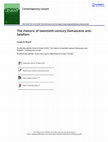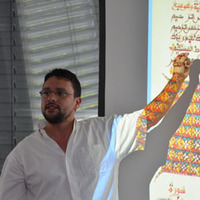Papers by Farah El-Sharif
University of North Carolina Press, 2020
Islamic Scholarship in Africa

Contemporary Levant
The renowned Syrian ʿālim Shaykh Muhammad Sa'id Ramadan Al-Buti was one of the world's leading sc... more The renowned Syrian ʿālim Shaykh Muhammad Sa'id Ramadan Al-Buti was one of the world's leading scholarly representatives of Sunni Islam in contemporary times. The written debates that occurred between the Damascene ʿulamā', al-Buti, and the iconic Salafi scholar and h adīth scholar Muhammad Nasir al-Din al-Albani constitute one of the most important and comprehensive intra-Muslim debates in the twentieth century, having helped to define a clear schism between the neotraditionalist position and its presumed opposite: Salafism. This article suggests that the rhetoric of anti-Salafism needs to be studied further to better understand contemporary currents in modern Islamic intellectual history. The adversarial rift that crystallised in the thriving Shāmī scholarly milieu of the 1980s and 90s informed the existence of a distinct neo-traditionalist school both in the West and many parts of the Muslim world for the latter part of twentieth century and to this day. At the intersection of political competition, textual methodology and competing visions of heresy and history, Islamic neo-traditionalism represents a key contestant in the battle for religious authority in contemporary Islam under the secular nation-state. Between championing a constructed concept of a 'tradition' for modern times and those who seek to return to a pristine 'true Islam', a deadlock is inevitable.











Uploads
Papers by Farah El-Sharif